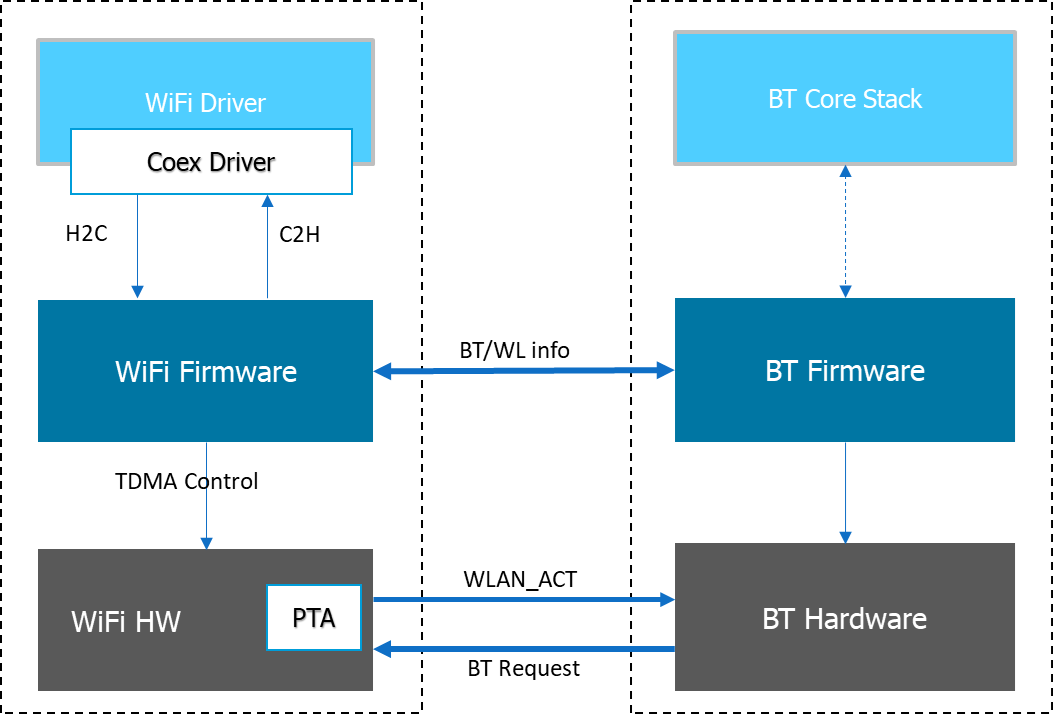SingleChip-Coex Function
Architecture

SingleChip-Coex Architecture
BT/WL info: exchange BT profile or WL channel information by mailbox or APIs.
PTA (Packet Traffic Arbitrator): the hardware basic of coexistence.
PTA Module Introduction
The PTA module mainly receives packet-based traffic requests from the WL and BT modules. Based on the priority settings in the coexistence table, it arbitrates and outputs the WLAN_ACT signal to control WL/BT access to the RF.
In TDMA mode, the coexistence table switches to values appropriate for each time slot according to the time-slice allocation.

PTA Module
Coexistence Strategy
Whether it is SingleChip-Coex or DualChip-Coex, the coexistence mechanism determines the use of RF resources based on the priority of each packet from the requesting modules.
The coexistence strategies are mainly divided into two types: PTA and TDMA.
PTA Strategy
Pairwise arbitration between different requesting modules is performed based on packet priority, and the arbitration result is output to the requesting modules via the wlan_act (or pta_gnt) signal.
TDMA Strategy
TDMA is a time-division multiplexing mechanism. Based on the PTA workflow, the software layer adjusts coexistence policies according to different time-slot cycles to control WL/BT access to RF resources. Different requesting modules use RF according to time-slot allocation. For example, in the WL time slot, WL is selected with relatively higher priority; in the BT time slot, BT is selected with relatively higher priority; and in the external-device time slot, the external device is selected with relatively higher priority. The time-slot cycle can be divided into a BT time-slot cycle and a WL time-slot cycle. As shown in the figure, during the BT time-slot cycle, BT has higher priority to transmit/receive packets; during the WL time-slot cycle, BT high-priority packets still have higher priority to be transmitted/received, while BT low-priority packets have lower priority than WL packets.

TDMA Strategy
Scenario Support
Wlan & BLE
IDLE |
CONNECTING |
CONNECTED_IDLE |
CONNECTED_BUSY |
SCAN_HIGHDUTY |
SCAN_LOWDUTY |
|
|---|---|---|---|---|---|---|
WL_LINKING |
Y |
Y |
Y |
Y |
Y |
Y |
WL_CONNECTED |
Y |
Y |
Y |
Y |
Y |
Y |
WL_BUSY |
Y |
Y |
Y |
Y |
Y |
Y |
WL_SCAN |
Y |
Y |
Y |
Y |
Y |
Y |
WL_SCC |
Y |
Y |
Y |
Y |
Y |
Y |
WL_MCC |
C |
C |
C |
C |
C |
C |
Note
Y: SupportC: ToBeContinued
Wlan & LE Audio
To be continued
Wlan & Classic BT
To be continued

